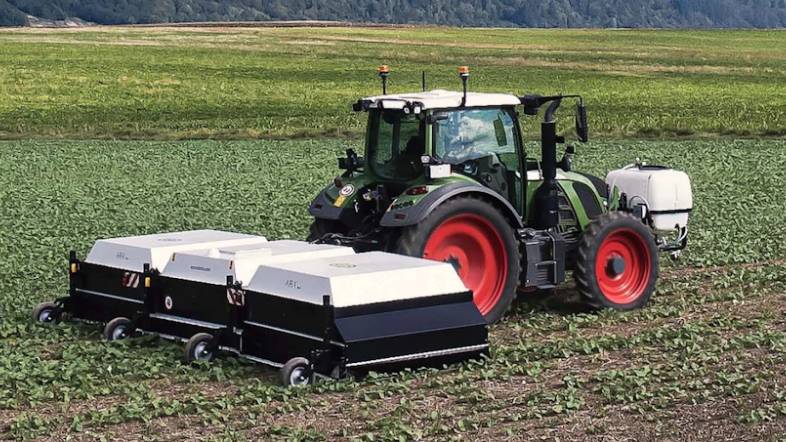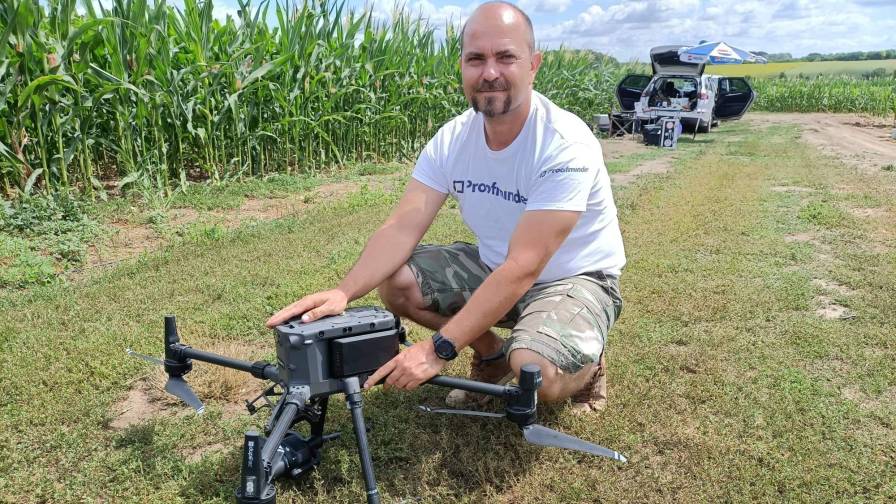3 Questions to Ask When Looking for Your First Job in Precision Agriculture
Let me begin this column by extending my congratulations to all of my fellow students who have just graduated – congrats on a job well done! It was a lot of hard work, and now you have a degree to show for it. This time of your life has come to an end, and now you probably have some big decisions to make for yourself.
This decision of “what do I do with my degree?” shouldn’t be taken lightly, of course, and I know many of you reading this are lucky in that you already have a job lined up after college. However, I know that I speak for many of us when I say that it can be overwhelming to decide in which direction to go after college – not to mention to deal with all of the applications, the cover letters, interviews, and so on.
This was something that I had to deal with myself recently. While I’m happy to report that I was able to find a job I see my future in, this decision – “how do I turn my education into my profession?” – was initially difficult for me to answer. The economy is doing well, the precision agriculture space is expanding, and there’s a lot of really interesting avenues to explore for your career. When you’re putting in the hours of legwork, how do you know if you’re making the right call?
I applied to a lot of great companies in a variety of agricultural spaces – seed companies, software vendors, agronomy companies, chemical companies, you name it. I also applied for a lot of roles, too – sales, operations, analysis, among others – with varying degrees of success. The problem for me was that there was so much I wanted to learn, but also in that I lacked focus in choosing what I wanted to do specifically.
MORE BY ERIC OETH
How a Simple Tax Bill Error Threatens Precision Ag Adoption in the U.S.
Electric Cooperatives and Precision Agriculture: Addressing the Digital Divide in the U.S.
The key for me to finding my place in this industry ultimately arose by asking myself three questions. You’ll probably ask them a lot yourself at any point in your career, and you can probably ask yourself some or all of them now. It helped me to write them out, however, and to organize my job hunt based on them:
- What do I like?
- What am I good at?
- What is practical for me to pursue?
Not earthshaking stuff, is it? Maybe so, but I found that I was only focusing on one, or maybe two, of these things when I was sending out resumes and scheduling interviews. Maybe the same could be said for you, too. I believe that these three questions should guide your decision-making process, because asking them is what allowed me to cut through the noise and finally decide on a direction to go in.
1. What do I like?
You should choose a job that excites you, if you can manage it. I’d say that what’s great about precision ag is that there are a lot of companies doing very interesting, cutting edge work right now. Did you like your agronomy classes in college? Maybe aerial imagery has caught your eye? Whatever it was that you did in college that piqued your interest, don’t be afraid to consider it. My advice: look back on your courses, and make a list of 4-5 courses in which you enjoyed learning about the subject matter. Use this to help your decision-making.
2. What am I good at?
You have to offer value to your future employers. If not, why hire you? Look back on your working career, your education, and your personal skills and ask: what am I really good at, compared to others? Your most “resumé-friendly” skills are what companies will be looking at, more so than your interest in a field, so try and make a list of things that you have to offer to companies and let that guide your decision-making process.
Note that this is not always the same as “what do I like?”. It’s great when you’re good at something you enjoy, but your ability to offer something practical to employers may not be what you’re most passionate about in life. For example, I don’t know of anyone who is passionate about Excel spreadsheets (although they might claim so on a resumé); nonetheless, it’s a fantastic skill to have. You should consider this when you are sending out your applications.
3. What is practical for me to pursue?
The last question, “what is practical”, is where you look at your personal qualities you listed above, and research specific positions that align with these interests and skills. There are many things we are all good at, and many things that we like in life, but these things can’t guide you to a great career if there is no actual career that jives with them. Here, a little online research goes a long way: I found my current job on LinkedIn with a search on the “Jobs” tab, and a few keywords that described my interests and qualities. Broaden your search by not only using job posting websites, but also search engines and social media, too. You may surprise yourself in what you find out there!
In closing, I’d like to say that it can be difficult to make such an important decision when you have so many options at your disposal. However, by approaching the problem with a process, you can find out more about what will work best for you in making it. Best of luck, and happy hunting!










